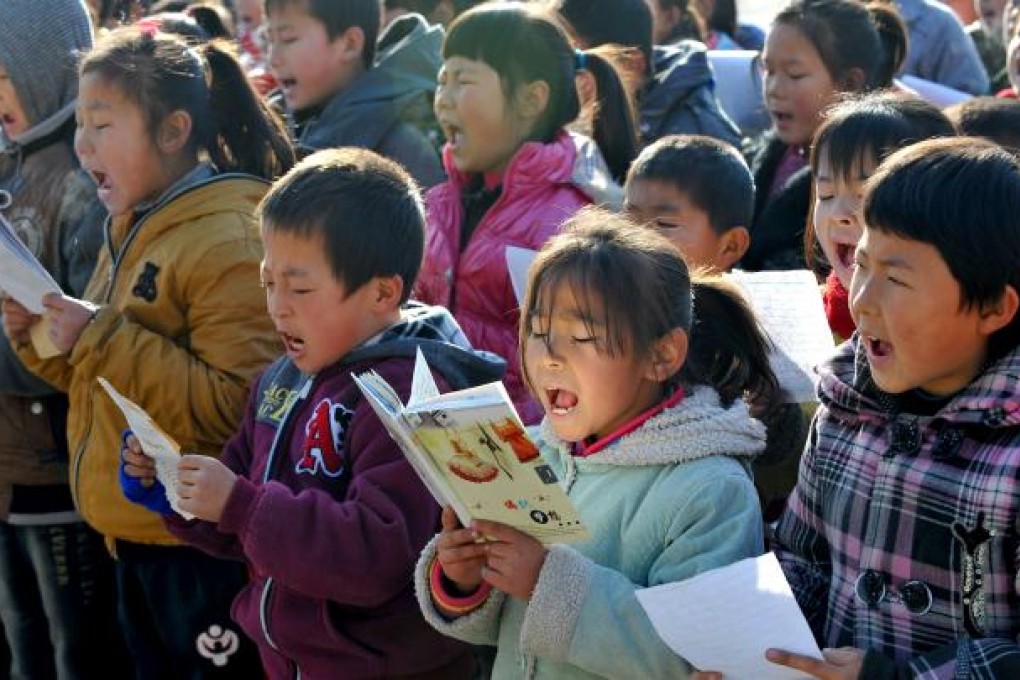China's left-behind kids cloud the country's dream
China can dream about grandeur and resurgence, but here are some new statistics that will pull her down. In her own backyard, among her vast rural poor in the countryside, many young children have no internet service, extra-curricular books and basic child-support services. Many have to trek for hours every day to attend poorly equipped schools with classes of up to 70 pupils.

China can dream about grandeur and resurgence, but here are some new statistics that will pull her down. In her own backyard, among her vast rural poor in the countryside, many young children have no internet service, extra-curricular books and basic child-support services. Many have to trek for hours every day to attend poorly equipped schools with classes of up to 70 pupils.
That's according to a new study, released as part of the 2013 Blue Book of Education. More than 80 per cent of the rural students left behind by city-bound parents have never used the internet. This compares with more than one in three pupils living with their migrant families in cities who are able to use the internet for at least half an hour a day. Just over a quarter of rural pupils living with both parents has regular access to the internet.
Official statistics put the number of left-behind children at about 58 million - accounting for a third of rural children on the mainland.
Rural students who have no parents to take care of them are deprived in many other areas, too. A quarter of them have no extra-curricular books, compared with just 4.4 per cent of urban pupils. Sixty per cent either live on their own or are in the care of grandparents or relatives, with little emotional support from their parents.
In contrast, pupils living with their migrant families in cities have greater access to school resources and are better taken care of. But even these migrant families face discrimination and many inequalities in cities because of the mainland's controversial hukou, or household registration, system, which is at the heart of migrant woes.
The central government must reduce rural inequalities, especially for those left-behind children. It has the resources, but not necessarily the will. A nation that dreams of greatness must do much more in looking after the young, poor and vulnerable in the vast countryside.